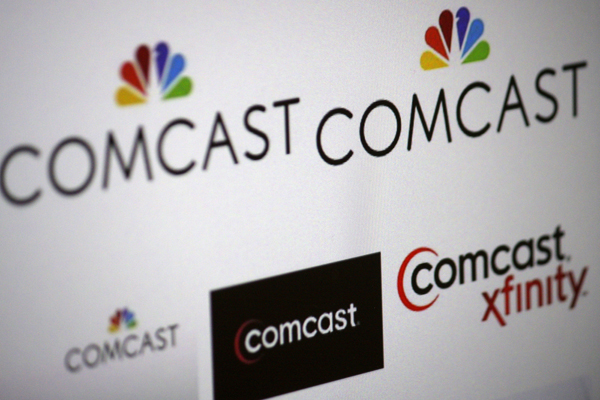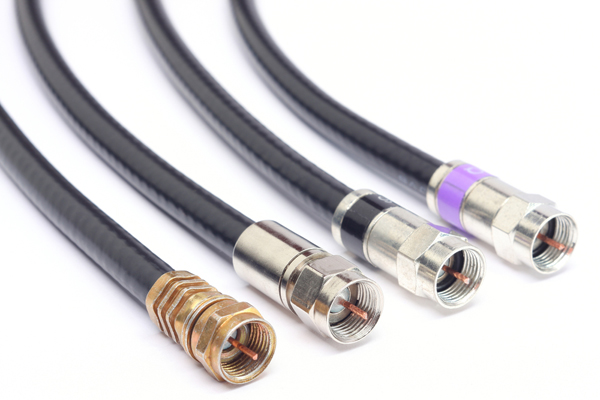Comcast ISP Review & Reader Survey Results
Tom's Hardware's ISP review series continues with Comcast, one of the industry's largest cable Internet providers. It's time to see what our readers thought of Comcast's performance, price, reliability and support.
Introduction
Last September, we launched a survey asking our readers to rate the price, performance, reliability and support of their Internet service provider (ISP). The response was massive, with more than 3,100 votes cast.
We have already shared the reader survey results for AT&T. The next ISP we are going to examine garnered the most responses in our survey, with 710 users rating the company's high-speed cable Internet service. We had our readers rate the company's prices, performance, reliability and support on a scale of one to five stars, with one being the least satisfied and five being the most. We averaged each category's total score and rounded the results to the nearest one-quarter star. We also provided the mathematical average, allowing us to compare scores later.
History
First called American Cable Systems, Comcast was founded in 1963 with the purchase of a 1200-subscriber cable television system in Tupelo, Mississippi. The business reincorporated as Comcast Corp. in 1969, and held its first public stock offering in 1972.
The company began to purchase other small communications entities, acquiring a larger customer base for its cable television services and increasing its market share. In 1997, Microsoft invested $1 billion in Comcast, allowing it to purchase larger companies like Prime Communications, Jones Intercable Inc. and Lenfest Communications Inc. These acquisitions netted Comcast another 2.3 million customers, further tightening its grip on the cable television market. Now a giant in the industry, the company even struck a deal with AT&T to acquire select cable systems in six different states in 2001, scoring almost another 600,000 subscribers.
In 2002, Comcast launched its HDTV service and what we now recognize as its high-speed Internet services; the company boasted of 3.3 million high-speed data customers that year. The remainder of the decade was spent acquiring more of its competition and creating services that we still enjoy today, such as digital voice, video mail, DVR and On Demand.
As cable Internet speeds began to increase, Comcast introduced its first 50 Mb/s subscriptions in 2009. And in 2010, the company rebranded its technology platforms, products and services as Xfinity, giving its Internet-based services a hip new name (and possibly stealing a line from Buzz Lightyear).
In 2011, Comcast, along with General Electric, joined NBC Universal (which came into being after NBC and Universal merged in 2004), solidifying its spot as one of the most powerful communications companies on the planet. Last year, Comcast approved yet another insane acquisition, this time with rival Time Warner for a whopping $45.2 billion. This deal would have given Comcast roughly 40 percent of the total U.S. cable market, but the plans were abruptly dropped last April when public opposition and FCC reservations forced Comcast to abandon the effort.
Get Tom's Hardware's best news and in-depth reviews, straight to your inbox.
Today, Comcast offers its Xfinity High-Speed Internet service in virtually all regions of the country, with more than 22 million subscribers. It's no wonder that the company received the most responses in our reader survey.
Technology
Comcast offers high-speed Internet packages using coaxial broadband cable lines networked over a great distance. The signal is boosted via daisy-chained hubs, and unlike DSL technology, cable Internet customers typically don't experience performance degradation as they get farther away from the central hub. However, cable Internet subscribers use a shared hub to reach the Web, and can often experience reduced performance during peak times when many users are operating from the same hub.
Cable Internet can reach higher peak speeds than the alternative, but generally costs more per Mb/s. Here’s a full chart of Comcast's primary service plans, speeds, prices and serviceable regions:
| Speeds (In Mb/s) | Prices (Per Month, Non Promotional) | Primary Service Regions | Technology |
|---|---|---|---|
| 3, 10, 25, 75, 150 | $40, $50, $67, $77, $79 | AL, AZ, AR, CA, CO, CT, DE, DC, FL, GA, ID, IL, IN, KS, KY, LA, ME, MD, MA, MI, MN, MS, MO, NH, NJ, NM, NY, NC, OH, OR, PA, SC, TN, TX, UT VT, VA, WA, WV, WI | Coaxial Cable Internet |
Derek Forrest was a contributing freelance writer for Tom's Hardware. He covered hardware news and reviews, focusing on gaming desktops and laptops.
-
basroil No mention of their supercookies and man-in-the-middle attacks? How about some extra pages dedicated to those horrible aspects that should have them a max of one star?Reply -
basroil Reply17372236 said:Anyone who rates their service more than one star is deluded.
Guess you've never had optonline or NTT, I give both a solid 3+ (some slowdowns, bit pricy, but actually decent support and reliability. -
firefoxx04 Comcast is garbage. Waiting in line at one of their locations is worse than waiting at the DMV. You have to deal with their dog <mod edit> support unless you are lucky enough to get some tier 3 + person who actually has a brain.Reply
Want to use your modem? good luck getting the service activated. The Indian lady on the phone has ZERO IT experience and it will take her 3 days to get you up and running. Absolute trash. -
10tacle I participated in the AT&T survey after moving and having to get it since Comcast was not in my area. I previously had Comcast for eight years. These ratings are about on par with my experience with Comcast: pricey but high quality in both speed and reliability, two things that are critical for someone who works from home a lot and who games online a lot. AT&T is less expensive but the tier speed and quality is lower and outages more frequent.Reply
But if you EVER have to go into an Xfinity store and get upgraded equipment or turn it in, good luck. The people there are worse than any county government driver license or tag office. It took me over TWO HOURS to turn in my equipment. Comcast/Xfinity's customer service reps are morons.
What people need to always keep in mind however is that everyone may have different experiences with each ISP/cable company depending on where they live. A lot of it has to do with infrastructure investment. For example, Comcast spends more in Atlanta on quality and performance than they do in say a little town in Kansas. And large cities are always the first to get the latest tech boost too. The push to 1GB fiber will be years away from making it to the less populated areas (many will never see it). The same can be said for mobile phone companies too. -
clonazepam I strongly dislike Comcast. In fact, I'd dismiss their entire board. They are clearly not cut out for the positions. All of the people that exercised choice and went to the internet for content, instead of cable television, gets punished by being charged extra for more data usage. It's going to happen. They want that lost revenue back from the cord cutters.Reply
My satellite service uses Comcast for the guide and any on-demand service. Then there's Netflix, Google's Youtube, Amazon's Twitch.tv, and the list goes on.
Comcast's streaming service is absolute garbage. There's no really good sorting option and trailers are just lumped in with everything else. Total garbage. -
Grenadehhh I've been a Comcast customer for going on a year now. In Houston, TX. My experience has been decent. Customer service wise, they are absolute trash. I once literally spent over an hour on the phone with some agent who was clearly in Manila (I've worked ITSM call centers before and I know when I'm talking to the Phillippines) trying to explain to her that I cannot use the automated system because it's rejecting my phone number and account number, and she kept asking me for my phone number then having issues finding it. I know, that's why I'm trying to talk to a real person to fix this. Was on the phone over 2 hours total by the time they finally fixed my phone number and then got to the reason I called.Reply
I've called them many times for support and I truly dislike their phone reps. Trust me buddy, I've power cycled. I've totally reconnected everything. I've swapped cables. I've soft reset. I've wiped my tcp/ip stack, etc. etc. I've been working in IT for 15 years, I'm well aware of whether or not the issue is on my side. So the last time I called, the phone tech gave up immediately and said "We have to send out a tech, tomorrow" - 24 hours later. Dude shows up with a coworker, he must have done something outside because 3 minutes later when he walked in and looked at the gateway, it was working fine again. Total waste of everyone's time his included - I'm sure he had actual issues to fix.
One time in June or so 2015 there was a mild, pansy lightning storm. It fried my gateway and then jumped to my machine and fried my NIC on my desktop, because I didn't use a surge protector on the gateway - like a moron. To their credit, I called them up and drove up to the nearest service center, swapped out the gateway, and was back up and running within an hour.
Performance wise, and quality wise,they are so much better than TWC was in Cincinnati. And TWC was splendid, no problems whatsoever ever except infrequent outages.
I have 250mbps net with speed boost usually getting 300mbps, and I live in an apartment where their good service isn't even available. There have been maybe 3 outages since last May, and I've gone completely without net for maybe 2 days total. The quality is usually good. I don't do anything "intensive" outside of using Steam where I'm generally downloading at 35 megabyte/second. For about $70 a month. This is after they cancelled my account and screwed me out of time and money, because originally the top tier plan available was 150mbps for 80 or 90 a month. The only real downsides are when you try to access certain things that aren't immediately in Texas, there can be a noticeable performance dump. Which is basically everything, but at least this state makes up for it by hosting so many servers in Dallas and Austin. For gaming, I've never had any issues inside of the USA (Obviously all ISPs are terrible at communicating across the planet) but I do seem to encounter problems more and more on YouTube where videos simply don't buffer worth a damn.
I can't speak highly of their Xfinity cable - especially of how they have a monopoly on local sports broadcasting, this being an NFL, MLB, and NBA town that loves its sports. My cable literally never worked and I cancelled it. But the internet has been fantastic.
However, everyone knows they are an evil, awful company with a board and executives that need to be dismissed. From the attempted merger with TWC to the proposed increased rates-per-gb, etc, they are just terrible. Unfortunately here in Houston, there is literally no choice. I work for AT&T (don't let them know) and they offer Uverse internet, which is a complete joke - 18 mbps at the highest in my area. And you can't get FiOS in a lot of areas. So Comcast is, literally as I said, the only option for residential service.
Still waiting on that Google though, that or I'm going to move to Austin. -
larkspur I've had Comcast as an ISP for 15 years and participated in the survey. I am presently on the 50mb/s tier with no data cap. I live in Southeast Pennsylvania in a rural wooded area that has a lot of power outages. My modem and router and computers have UPS units and I have a generator for when we lose power for days at a time. About 90% of the time when the power goes out, I still have internet service. Last year we lost power for 6 full days. Internet service was only out for 12 hours.Reply
The speed is as advertised and as I said, very reliable. The real selling point for me is that there's no data cap and no throttling and it's more reliable than our electricity. My sister uses a satellite ISP - when I visit her it is painful to browse the web (terrible latency) and she also has a data cap so forget about streaming anything. My Aunt has DSL (not sure what speed) and it is like molasses. Comcast is really too expensive, but considering my options, it is my best choice especially because I spend a lot of time working from home and I absolutely abhor data caps.
I haven't needed to call technical support for about 5 years now. Last time was to activate a new modem and it went smoothly.
But here's my biggest gripe with Comcast: every year I have to play the "promotion" game. I get the bill and notice it's doubled and I see that my old promotion ran out. So I call customer service and speak with a sales rep. Then the sales rep and I dance back and forth while he tries to sell me additional services or increase speeds all for just $20 more than I was paying with my old promotion. No I don't want your stupid home security package! I patiently explain that I don't want anymore services and am happy with my speed and just want to pay what I was paying before because it was already too expensive. Then he'll tell me there's no promotions available at my speed-tier and that my only option is to either pay regular pricing or increase or decrease my speed tier. That's when I threaten to go to Verizon (yes, amazingly my area has fiber available but after talking to them I'd have to pay for them to bury the fiber cable from the street to my house which is a long distance). At that point he puts me on hold and then comes back having magically found a promotion that gets me what I want for 'only' $5 more than what I was paying. So an hour later (lots of time on hold) I am now paying slightly more than I was paying before for the same service and I've only achieved this by threatening them with cancellation. And then a year later we do it again... -
joz I kinda got lucky, got grandfathered into a 25mb $50/mo plan, that they can never, ever, get out of unless I fail to pay my bill - which won't happen, since I prepay half a year's worth of service, every half a year. And, they can never put a cap on me either. Well, they can, but they would have to pay me back the money I've paid them in full, plus the remaining time of the contract (2 year contract with automatic renewal.) And then I have the option to sue them for breach of contract {without arbitration.} Needless to say, the few times I've had to put in a service call for support have been absolutely miserable compared to my friends who have regular comcast service and have needed to call for support.Reply
But is it worth it? oh yes, oh goddamn yes. Still, when Google fibre and/or Verizon FIOS rolls into my area, I might double up on connections for a few months and see if it's worth skipping out on comcast at that point. -
Shankovich Dear God $40 a month for 3 MB/s???? That really sucks. In Toronto we can get 50 down 10 up for $55 CAD monthly on DSL, albeit we have some restriction issues and our regulatory agency for providers is corrupt as hell.Reply


